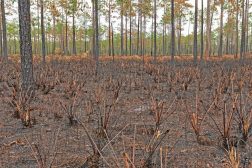Green revolution
advances in genetics, petrochemicals, and machinery that culminated in adramatic increase in crop productivity during the third quarter of the20th century.
The introduction of pesticides and high-yield grains and better management during the 1960s and 1970s which greatly increased agricultural productivity.A term relating to the advantages that have been harnessed by mans better understanding of genetics. By determining the genotype of species such as maize, two organisms are deliberately crossed to produce a hybrid with desirable characteristics. Such pre-determined mating of organisms has resulted in increased crop yields for example, as a result of more productive crops as a result of them having the desirable characteristics from its parents.
Dictionary > Green revolution
You will also like...

Role of Golgi Apparatus & Endoplasmic Reticulum in Protein Synthesis
The endoplasmic reticulum and Golgi apparatus are the organelles involved in the translation step of protein synthesis a..

Growth and Plant Hormones
Plants, like animals, produce hormones to regulate plant activities, including growth. They need these hormones to respo..

Ecology & Biodiversity: New Zealand Flora & Fauna
New Zealand is known for its unique biodiversity, caused by its remarkable geography and geologic history. Breaking away..

Mātauranga Māori and Science
Mātauranga Māori is the living knowledge system of the indigenous people of New Zealand, including the relationships t..

Plant Cells vs. Animal Cells
Plant cells have plastids essential in photosynthesis. They also have an additional layer called cell wall on their cell..

Ecosystem Succession
If the balance of nature is left untouched, landscapes can change dramatically over time. A previous ecosystem is supers..

